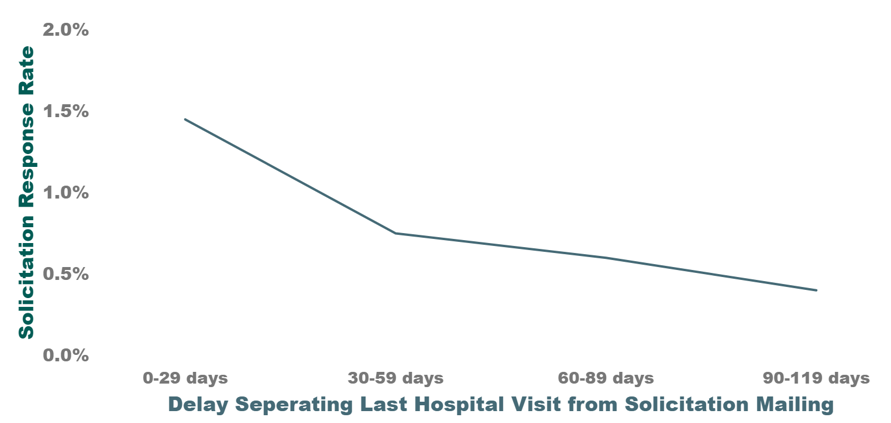When it comes to fundraising, one of the most vexing variables to deal with is often timing. When do we ask for the gift? Organizations that provide services to potential donors fear that asking too soon after an interaction may come off as opportunistic and turn donors off. However, a new study from Katherine Milkman, Judd Kessler, and Amanda Chuan at the Wharton School shows that sooner is far better than later when it comes to asking for a gift after providing a service.
The study examined a major hospital system and analyzed response rates to direct mail solicitations and how they related to time passed since a hospital visit. The researchers discovered that as more time passed between visit and solicitation, donors were less likely to make a gift. In fact, waiting an additional 30-days to send a solicitation after a visit decreased the likelihood of a donation by 30%.
These findings have implications beyond hospitals and can be applied to any organization that provides a service to their potential donors, including education, religious, and arts organizations. A community theater, for example, could increase giving by sending solicitations to ticket buyers within 30-days of seeing a show, instead of waiting for a quarterly or annual appeal.
Intuitively, the study suggests that a potential donor receives a positive feeling that engenders reciprocity after receiving a service from a nonprofit, but that feeling fades over time. The sooner you can make an ask after that seed of reciprocity is planted, the more likely you are to receive a gift.



